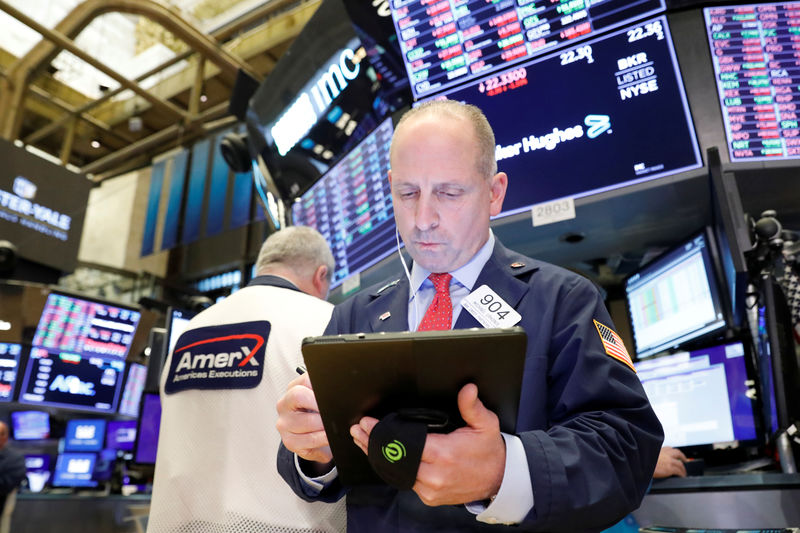By Sinéad Carew
(Reuters) - Wall Street's major indexes ended Friday's shorter session lower as U.S.-China discord over Hong Kong fueled investor anxiety about trade talks and retail stocks dipped as in-store Black Friday sales appeared to draw smaller crowds.
China on Thursday threatened to retaliate against a U.S. law backing pro-democracy protesters in Hong Kong with potential measures including barring drafters of the legislation from mainland China, Hong Kong and Macau, the editor of China's state-backed Global Times tabloid said in a tweet.
And on Friday a Reuters report cited two sources saying the U.S. government may expand its power to stop more foreign shipments of products with U.S. technology to China's Huawei, due to frustration that a blacklisting failed to end supplies to the world's largest telecoms equipment maker.
While the S&P closed above its session low, selling intensified in the last hour of trading after the report on Huawei.
All three of Wall Street's major indexes had registered record highs earlier in the week when hopes were higher for an imminent "phase one" U.S.-China trade deal. The trade-sensitive Philadelphia Semiconductor index (SOX) fell 1.1%.
For the month preliminary Refinitiv data showed that the S&P rose 3.4% while the Dow gained 3.7% and Nasdaq climbed 4.5%. It was the the biggest monthly gain for all three major indexes since June.
The U.S.-China news gave "a little bit of a weaker tone" to Friday's market, Jack Janasiewicz, a portfolio manager and strategist at Natixis Investment Managers Solutions in Boston.
The Dow Jones Industrial Average (DJI) fell 112.59 points, or 0.4%, to 28,051.41, the S&P 500 (SPX) lost 12.65 points, or 0.40%, to 3,140.98 and the Nasdaq Composite (IXIC) dropped 39.70 points, or 0.46%, to 8,665.47.
While many traders took the day off after Thursday's U.S. Thanksgiving holiday, Janasiewicz said others were likely on the sidelines as they waited for economic data including the jobs report due out next week and any retailer comments about initial numbers for the year-end holiday shopping season.
"We've got a good slate of data coming next week that'll give us a better indication where we are in the cycle and people are going to want to know how did today's retail sales go," he said.
Spot check reports on retailers around the country showed fewer people than in past years lining up outside stores at the start of Black Friday, suggesting that online buying may have taken the shine off America's biggest shopping day.
"Looking at foot traffic volume is not quite as telling any more. It's going to be online shopping as well. That's going to be the bigger one," said Janasiewicz.
"Are people getting up, getting dressed and going out and shopping physically or are they just getting dressed, moving to the couch and turning on their computer and ordering online."
The S&P 500 retail sector <.SPXRT> fell 0.8%, with Kohl's Corp (N:KSS) dropping 2.7% and Gap (N:GPS) falling 1.8%. Top retailer Walmart Inc (N:WMT) rose 0.3% while Costco (O:COST) fell 0.3% and electronics retailer Best Buy Co Inc (N:BBY) also dipped.
Shares of Tech Data Corp (O:TECD) jumped 12.3% as private equity firm Apollo Global Management (N:APO) raised its bid for the U.S. information technology equipment distributor to about $5.14 billion.
Declining issues outnumbered advancing ones on the NYSE by a 1.86-to-1 ratio; on Nasdaq, a 1.35-to-1 ratio favored decliners.
The S&P 500 posted 18 new 52-week highs and one new low; the Nasdaq Composite recorded 75 new highs and 28 new lows.

Trading volume was light in the truncated session with 3.55 billion shares changing hands on U.S. exchanges compared with the 6.86 billion average for the last 20 sessions.